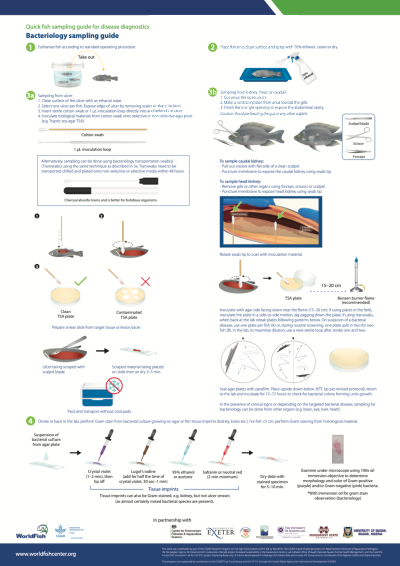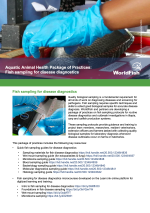Quick fish sampling for disease diagnostics: Bacteriology sampling guide
1 February 2024 | Delamare-Deboutteville, J., Khor, L., Ali, S.E., and Chadag, V. | 129 Downloads | .pdf | 8.85 MB | Health and welfare
Bacterial diseases represent one of the major impediments to sustainable aquaculture. Routine screening for bacterial pathogens at various life stages of tilapia, carp and catfish a are important to minimise their introduction into production systems and before they can cause serious diseases and spread to new areas.
During an abnormal mortality event, routine sampling for bacteriology from moribund animals should take place rapidly as part of the disease diagnostic investigation.
Bacteriology is the culture and identification of bacteria growing under specific conditions. WorldFish and partners developed this quick guide on fish bacteriology sampling. Standard bacteriology is a swab taken from the caudal or anterior kidney and inoculated onto agar (e.g. Tryptone soya agar) to screen for systemic bacterial infection. Additional swabs may be included in the presence of external or internal lesions/ulcers (e.g., eye, skin, mouth, liver, spleen, brain).
A free online training course on bacteriology sampling is also available via Learn.ink.
Publisher: WorldFish
Rights: Creative Commons Attribution-NonCommercial.

